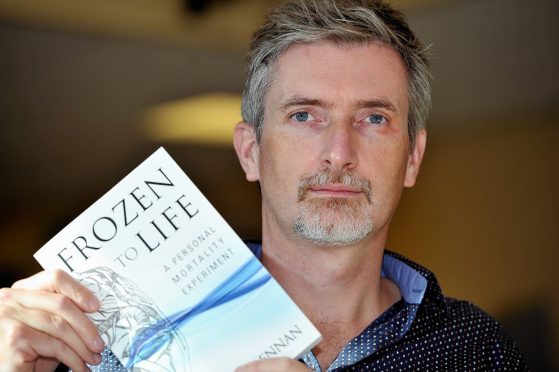A man from Skye who wants to have his head removed and preserved after his death was one of the key speakers at a conference aimed at breaking the taboos around death.
Dying to Know encourages people to think about the practicalities of the final phase of their lives – and ensure they make their wishes clear about what they would like to have happen after they die.
The drop-in event held in Drumnadrochit was organised by NHS Highland in association with High Life Highland.
One of the key speakers was DJ MacLennan, from Skye, who plans to have his head removed and preserved at extremely low temperatures in the hope technology will one day allow him to be restored to health.
He read from his book, Frozen to Life: A Personal Mortality Experiment, and give a talk about his plans.
Mr MacLennan will give his body to the Alcor Life Extension Foundation in Arizona, regarded as a world leader in the field of cryonics.
This involves a cooling process which does not allow ice to form, preventing cell damage if technology advances to the point where the preserved material can be revived.
Other subjects included talks on taboos, the importance of making wills and options for granting power of attorney.
Keith Walker, executive director of Befrienders Highland and a trustee of the Samaritans, said he was pleased with the response generated by Saturday’s event.
He said: “Death is something that comes to us all but it is one of those taboo subjects.
“It makes it easier for everyone if it’s something that can be discussed more openly.”
The event was organised by health board community development officer Kate MacLean who said the event, now in its fourth year, was all about breaking down misconceptions and making sure people were prepared for the inevitable.
She said: “There are misconceptions around the practical aspects of death and illness which can cause difficulties for families.
“For example, many people do not know that if they become ill or have an accident, their ‘next of kin’ does not automatically have legal power to make decisions about them, take them home from hospital or even to access their bank accounts.
“Starting a conversation may be difficult, but much fear and anxiety can be removed by people making arrangement in advance while they are well. Only 35% of people in Scotland have written a will.”
